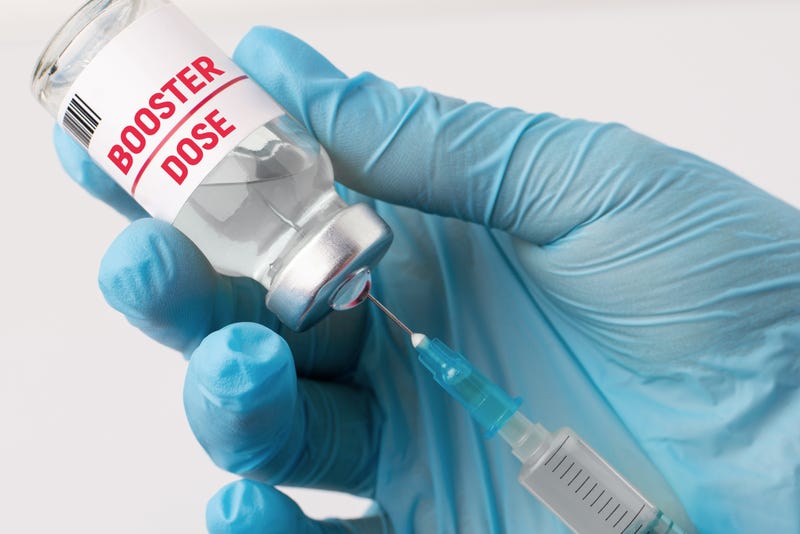
COVID-19 booster shots with an updated formulation could be available for back-to-school season in September, according to sources cited by The New York Times.
These retooled vaccines would perform better against omicron subvariant BA.5, which is the dominant variant of the virus in the nation as of Friday, according to the U.S. Centers for Disease Control and Prevention. However, there are some parts of the plan that need to be worked out.
While “people familiar with the deliberations,” said that Moderna and Pfizer, companies that make mRNA COVID-19 vaccines approved for use in the U.S., have now promised to deliver new vaccines by September, both companies said in June their new boosters would be ready in October, The New York Times reported.
Moderna and Pfizer also announced last month that research found new formulas they had been working on offered better protection against omicron that earlier vaccine formulas.
According to a June 29 press release, the U.S. Department of Health and Human Services announced an agreement with the Department of Defense to purchase 105 million doses of Pfizer’s COVID-19 vaccine for a fall vaccination campaign, with options for up to 300 million doses, following a June 28 U.S. Food and Drug Administration Vaccines and Related Biological Products Advisory Committee meeting.
During that meeting, the committee said that fall rollout vaccines should be formulated to fight against omicron.
All adults and children are expected to be eligible for the updated booster shots in September, said The New York Times. In preparation for the expected rollout, people should be urged to get up-to-date on their current vaccinations as soon as possible, said the outlet.
As of Friday, the CDC recommends that everyone who is between 6 months old to 49 years old receive at least three doses of COVID-19 vaccine, with interval times and dosage amounts varying by age. Those age 50 and older and people with some types of immunocompromise should also get a second booster dose, per CDC guidelines.
Shane Crotty, a virologist at the La Jolla Institute for Immunology, explained that new boosters won’t work if administered too shortly after another dose of the vaccine.
“You can’t get a vaccine shot Aug. 1 and get another vaccine shot Sept. 15 and expect the second shot to do anything,” he said. “You’ve got so much antibody around, if you get another dose, it won’t do anything.”
There are also concerns that shots timed too close together may increase the risk of developing myocarditis, especially for young men, said The New York Times.
“As of midweek, health officials were still working out their specific advice about the reformulated shots,” the outlet said.
Furthermore, the federal government is worried that the public might be losing patience with getting more shots for the virus, which has been fueling a global pandemic for more than two years. Each time a new shot it offered, less people opt to get them.
While more than 78% of the U.S. population had at least one dose of a COVID-19 vaccine as of Thursday, less than 35% of people over 5 years old had received a booster dose.


